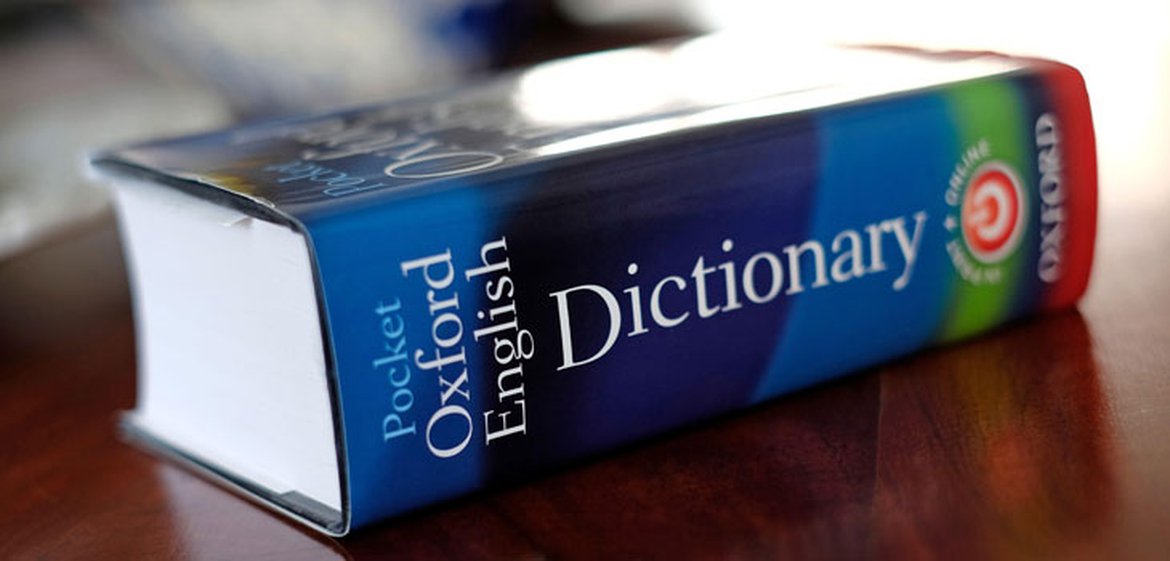Word’s Worth: In Praise of Dictionaries
Aug. 29, 2025

Last weekend, while enjoying late summer cottage time with friends, we played an old game: Slang Teasers.
You might know Slang Teasers by one of its other names—“Fictionary” or “Dictionary” or “The Dictionary Game.”
Whatever you call it, the object of the game is to create your own definition to a word chosen from, in the case of Slang Teasers, the Official Slang Teasers Dictionary. With said definition, you're aiming to trick opposing players into believing it’s the correct one. Points are awarded if you guess the correct definition or others guess your made-up definition.
For example, our recent game featured the word “long pig.” The gang offered up several colourful definitions, including “a town in Alabama,” “an Irish walking stick,” and “English cured bacon.”
But the real definition of “long pig”? "Human flesh as a food for cannibals.” Yuck! Who knew?!
For the record, not one of my friends guessed the real definition. As “Slang Master” for that round, I kept a “clean sheet,” as they say in soccer, and so scored 2 points. (A few of us did remark afterwards that there is a hint of redundancy in the official definition, but ours is not to question why.)
As a dictionary of “slang and unusual words,” the Official Slang Teasers Dictionary is a sub-set of larger, more official dictionaries. (I checked the Oxford, the Collins, and the Merriam-Webster, and sure enough, “long pig” was there.)
When you think about it—and I do—dictionaries are marvellous.
Over the centuries, they’ve shaped and standardized language. They’ve inspired creativity. And they’ve settled more than a few scores among friends.
Here, then, is a brief and highly selective list of some of the most important dictionaries of the English language and the (mostly) men behind them.
A Table Aphabeticall [sic], by Robert Cawdrey, 1604
This dictionary of “hard words”—those that were foreign, technical or obscure—was intended for the benefit of Ladies, Gentlewomen or “any other unskillful persons.” It was dedicated to Lady Hastings, Lady Dudley, Lady Montague, Lady Wingfield and Lady Leigh. (Not only a dictionary, then, but an early example of mansplaining!)
A Dictionary of the English Language, by Samuel Johnson, 1755
Whereas Cawdrey’s work had only around 2,500 words, Johnson’s contained almost 43,000 entries. Assembled over nine years, the dictionary included a wide range of words, offered multiple definitions for each word, and supplied quotations from literature to illustrate usage. It also shows Johnson’s characteristic humour. For example, the definition for “lexicographer” included “a writer of dictionaries; a harmless drudge.”
Oxford English Dictionary, 1928
Although the OED had many editors, the one most closely associated with the project is Sir James Murray. Murray, a talented linguist who had worked both as a banker and teacher, was the chief editor from 1879 until his death 36 years later.
Faced with the daunting task of producing a comprehensive dictionary, Murray enlisted the help of scores of volunteers, including William Chester Minor, a retired US Army surgeon who was, at the time, detained in the Broadmoor Criminal Lunatic Asylum. The story of their relationship is wonderfully told in Simon Winchester’s 1998 book, The Professor and the Madman.
Supplement to the Oxford English Dictionary, 1972-1986
The supplement to the OED was edited by Robert W. Burchfield, a New Zealander who studied at Oxford University under C.S. Lewis and J.R.R. Tolkien. Apparently, he was another tireless and tenacious lexicographer—he spent 25 years editing the four-volume edition.
According to Grammar Girl, a.k.a., Mignon Fogarty, “His work was frequently controversial, and he fought to include such things as racial slurs, words from foreign countries, and trademarks…He ended up in court over some issues and also received death threats.” Clearly this dictionary business is not for the faint of heart.
Cambridge Dictionary, 1999
The Cambridge Dictionary is the world’s largest online dictionary. It uses something called the “Cambridge English Corpus,” a database of more than two billion words of written and spoken English to monitor how different people use new words, how often they use them, and in what context.
Every year, the dictionary adds thousands of new words. Among this year’s additions:
- delulu: a play on the word delusional, meaning “believing things that are not real or true, usually because you choose to”
- tradwife: “a married woman, especially one who posts on social media, who stays at home doing cooking, cleaning, etc. and has children that she takes care of”
- broligarchy: a blend of bro and oligarchy, meaning “a small group of men, especially men owning or involved in a technology business, who are extremely rich and powerful, and who have or want political influence.”
As for me, perhaps I’m delulu about the state of the world today…between the tradwives and the broligarchy, it all seems to be going to hell in a handbasket.
Still…you can always marvel at the evolution of the English language. That’s something, at least.
Remember this:
Read a dictionary. You can learn a lot!
